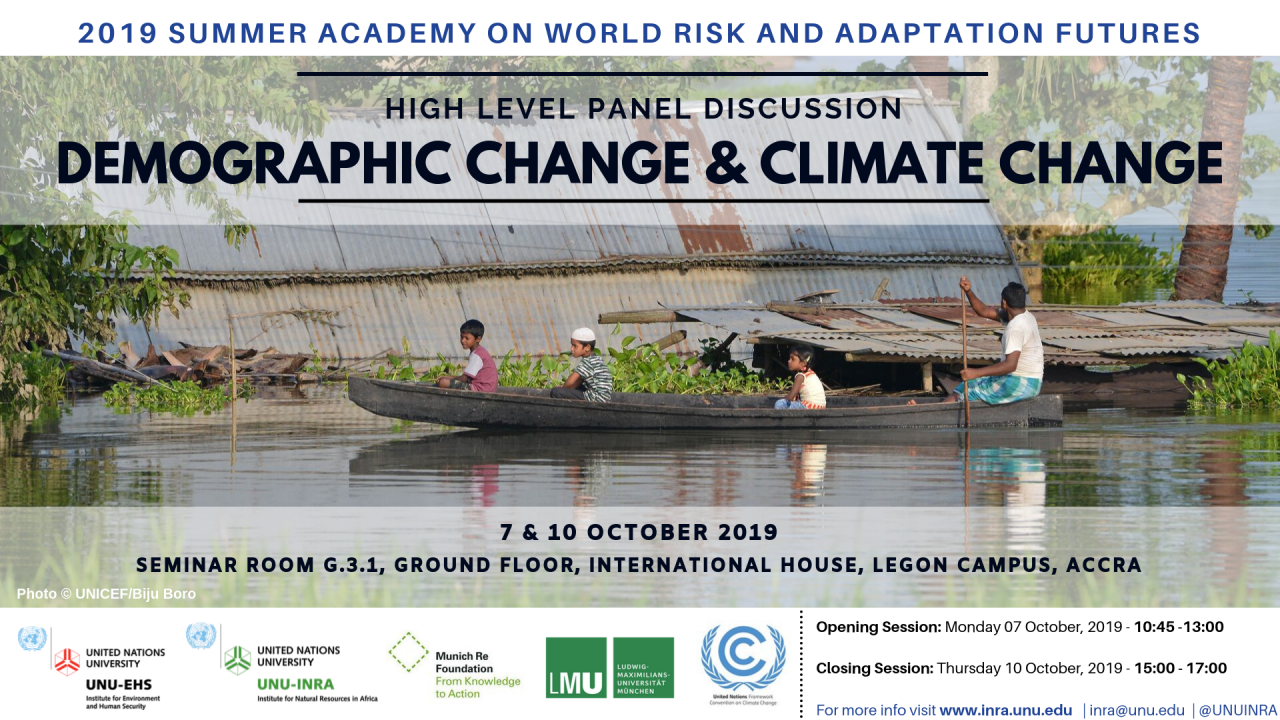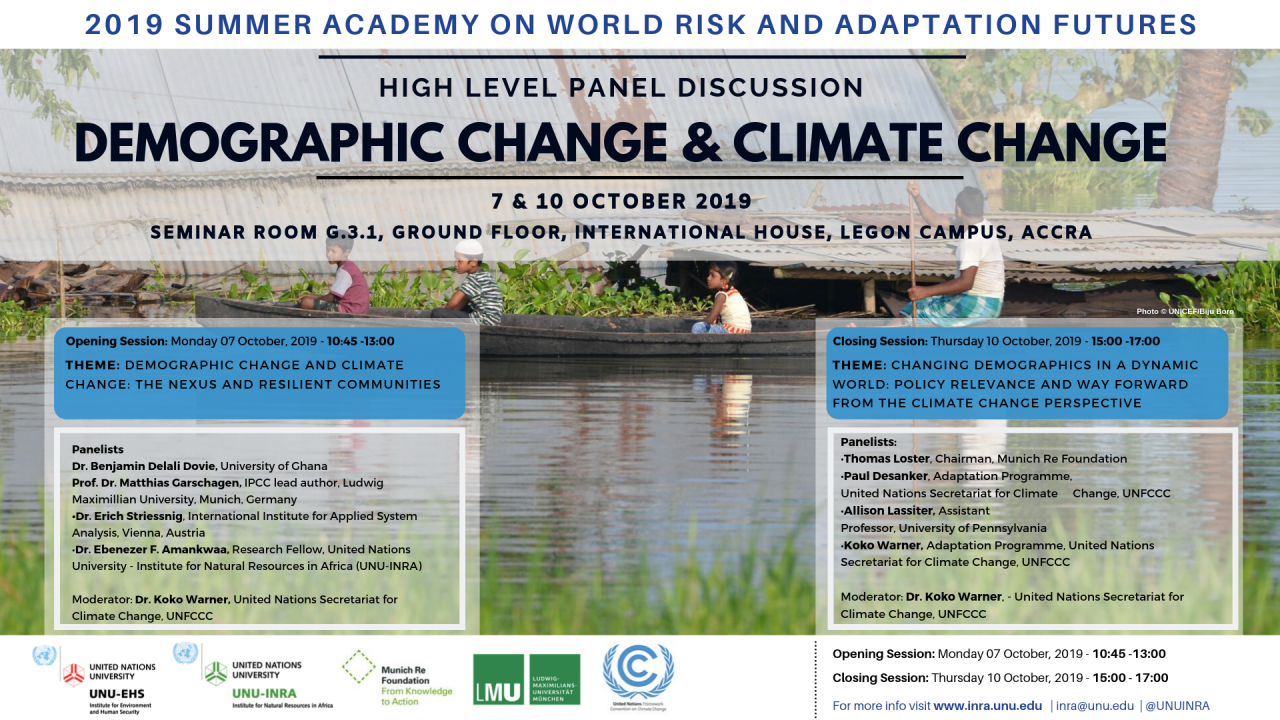UNU-INRA High-Level Discussions on Demographic Change and Climate Change
-
October 4, 2019 Accra
The United Nations University Institute for Natural Resources in Africa (UNU-INRA) and the United Nations University Institute for Environment and Human Security (UNU-EHS), as well as other partners, are jointly organizing a series of panel discussions on Demographic Change and Climate Change Adaptation on Monday 7th October and Thursday 10th October 2019. The event will be held in Seminar Room G.3.1 of the International House at the University of Ghana, Legon. Monday’s session will begin at 10:45am, while Thursday’s session will begin at 3pm. The opening and closing panel discussions are open to the public.
The opening panel is a High-Level Panel Discussion on “Demographic Change and Climate Change – the nexus and resilient communities”, to be held on Monday, 7th October, 2019 from 10:45 am to 13:00 pm.
The closing panel discusses “Changing Demographics in a Dynamic World: Policy, Relevance and Way Forward from the Climate Change Perspective”, and will be take place on Thursday, 10th October, 2019 from 15:00 pm to 17:00 pm.
Speakers include Dr. Benjamin Delali Dovie, (University of Ghana), Prof. Dr. Matthias Garschagen (IPCC lead author, Ludwig Maximillian University, Munich, Germany), Dr. Erich Striessnig (International Institute for Applied System Analysis, Vienna, Austria), Dr. Ebenezer F. Amankwaa (Research Fellow, United Nations University – Institute for Natural Resources in Africa (UNU-INRA)), Dr. Koko Warner (United Nations Secretariat for Climate Change, UNFCCC), Thomas Loster (Chairman, Munich Re Foundation), Paul Desanker (Adaptation Programme, United Nations Secretariat For Climate Change, UNFCCC) and Allison Lassiter (Assistant Professor, University Of Pennsylvania).
In collaboration with UNU-EHS, UNFCCC, LMU and Munich Re Foundation, the event is part of the 2019 Summer Academy on “World Risk and Adaption Futures” which brings together 30 young and senior professionals and experts active in the field of Climate Change Adaptation, Disaster Risk Reduction and related fields from across the globe.
Countries across the world strive for resilience and sustainable development, and want to know how to address climate impacts and allocate their efforts in ways that safeguard their quest for climate resilient sustainable development. Risk practitioners and political decision makers need to consider the expected changes in climatic and social risk factors while trying to assess the level of risk at any particular point of time in future. In this regard, demographic change is one of the core factors shaping future exposure and vulnerability to environmental and climatic hazards.
UNU-INRA hopes to help bridge the science-policy gap in ways to contribute to achieving climate resilient sustainable development and advance actionable knowledge.
The Summer Academy aims to help frame decisions about how to manage climate impacts, vulnerabilities, and risks in ways tailored to the needs of a changing populace. With purposeful and effective ways to bridge knowledge with action, decision makers will be able to preempt human suffering, incorporate climate impacts into planning processes, and put appropriate contingency arrangements into place so vulnerable groups are not left behind. This summer academy is an effort in this direction for the just, sustainable and prosperous world.
For more information please contact: Qondi Moyo on moyo@unu.edu
Updates will appear on:
www.inra.unu.edu
Facebook: United Nations University- INRA
Twitter: @UNUINRA

